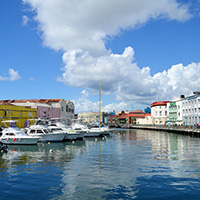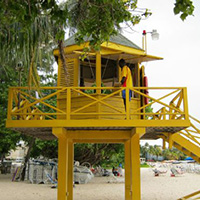Improving labour market efficiency in an island economy
Since achieving independence in 1966, Barbados has transformed itself from a low-income economy dependent on sugar production to an upper-middle-income and economy based on tourism and the offshore sector. In line with this transformation, the island has sought to update its occupational classification, allowing for a more contemporary account of jobs and job vacancies, whilst also giving jobseekers better information about the labour market and the skills and qualifications required for jobs.
The Institute for Employment Research (IER) was invited to undertake the task of defining and introducing a new occupational classification. Through an 18-month project, staff from the IER met with staff from government agencies, employers, educationalists and career specialists to establish a detailed classification. The Barbados Standard Occupational Classification (BARSOC) was introduced in late 2016.
One of the products created by the IER whilst undertaking this work was a specially tailored version of the CASCOT classification software which has been under continuous development by the IER since the early 1990s. Staff at the Ministry of Labour immediately saw the potential for this software to provide a web-based approach to potential users of the classification, particularly for careers advisers seeking descriptions of jobs and for jobseekers and labour market entrants looking for particular types of work. Accordingly, a second contract was issued to the IER to create an interactive version of BARSOC2016 to be available on the web. This work was completed in 2018.
Most recently, a further request has been made to the IER to incorporate what is termed the ‘Civil Service Qualifications Order’ within the web-based version of the software. This allows all interested parties to see the qualifications that are required for over 1,000 different jobs in the public sector in Barbados. The third development contract to undertake this task was issued in March 2019.
By bringing together those agencies and government departments with an interest in the labour market, plus employers and educationalists from the secondary and tertiary education sectors, a much better understanding has been created about the nature of the transforming island economy and the need to develop key skills.


